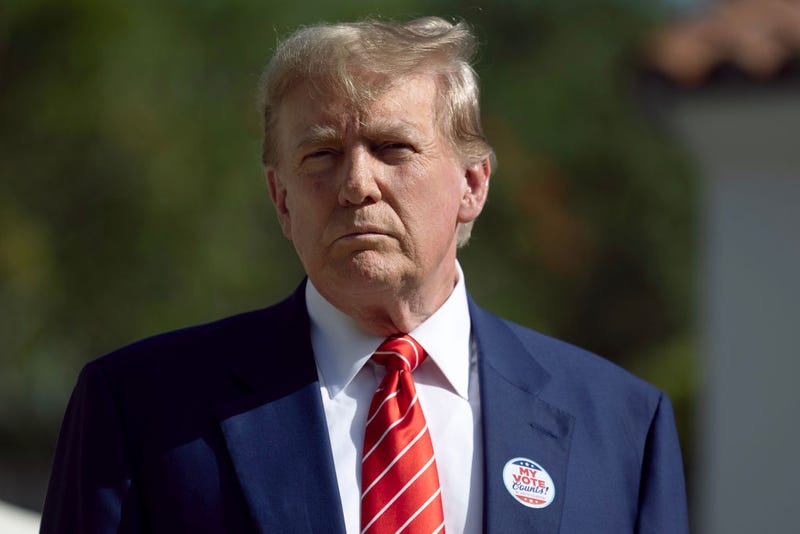
Former President Donald Trump was ordered to pay a $464 million penalty after being found liable for fraud last year, but now his legal team is saying he can’t pay the bond. So what happens next?
Trump has to find a way to secure the nearly half-billion-dollar bond by Monday, March 25, otherwise, he will risk the seizure of his assets. But, his lawyers maintain that the bond amount is unachievable.
“Defendants have faced what have proven to be insurmountable difficulties in obtaining an appeal bond for the full $464 million,” an affirmation by Trump Organization general counsel Alan Garten said on Monday.
The former president shared that he would have to have a “fire sale” of his assets to come up with the money to pay the bond, with his team requesting that it be lowered, arguing it is “unconstitutionally excessive.”
Lawyers Alina Habba and Clifford Robert wrote on Monday that if Trump had to have a “fire sale” to produce the cash, it would “result in massive, irrecoverable losses -- textbook irreparable injury.”
However, the New York Attorney General’s Office has objected to Trump’s requests for a lesser bond, arguing in response that Trump and his co-defendants “will attempt to evade enforcement of the judgment or to make enforcement more difficult.”
So here's what will happen if Trump doesn’t pay.
If by Monday, Trump hasn’t come up with the $464 million, he will be charged interest totaling $112,000 each day that the penalty goes unpaid.
Trump’s team is working to obtain a bond so that the enforcement of the penalty would be automatically paused while they move to appeal the ruling. However, in order to obtain the bond, Trump needs to post collateral covering 120% of the judgment, more than $557 million, his lawyers said in a court filing, The Hill reported.
Still, Trump is fighting the penalty through an appellate court, which, if it agrees with his argument, could pause the judgment while he appeals the ruling.
However, a decision would need to be made before the deadline of March 25, otherwise, New York Attorney General Letitia James (D) can start seizing some of Trump’s assets, including his properties in Manhattan.
James has said that if Trump isn’t able to pay the judgment, her office will seek “judgment enforcement mechanisms in court.”
